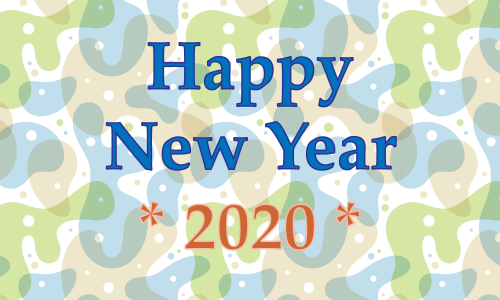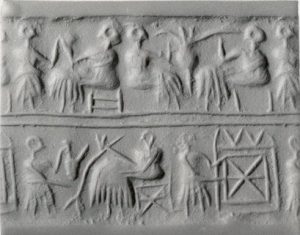Ah, that wonderful Madam Mina! She has man’s brain—a brain that a man should have were he much gifted—and a woman’s heart. The good God fashioned her for a purpose, believe me, when He made that so good combination.
Thus speaks Dr. Abraham Van Helsing in reference to the heroine in Bram Stoker’s Dracula. I recently picked up this wonderful novel which I read as a child. I didn’t remember it at all, except that I recall thinking it rather boring in places. This reading kept me riveted.
I think if I were to get an advanced degree in English literature, I would love to write a dissertation on Dracula. There’s so much in this novel to dissect. But I want to explore here this comment by Dr. Van Helsing, because I didn’t understand it at first.
We are programmed, to the point of brainwashing, to think of the idea of “man’s brain in a woman’s body” in a certain way. This sexed brain idea, mistakenly called postmodernist, is that we must accept, without question or examination, what transgender people tell us about sexed brains and apply this concept. To do otherwise is transphobic and non-intersectional. Accordingly, a “man’s brain in a woman’s body” is a brain that hates the woman’s body inhabited by that brain. The body is experienced as a foreign object that must be changed through hormones, surgery, pronouns, or at least clothing.
Another acceptable view of the man’s brain/woman’s body concept, which doesn’t necessarily negate the body-hating one, is that a man’s brain offers a predilection for experiences and things deemed “masculine” by society: rough sports, trucks, the color blue, etc. In other words, sex stereotypes.
The interpretation of sexed brain as stereotypes can become difficult to apply in any consistent way, because these stereotypes differ across time and culture. The way around this is postmodernism, which posits that we not only can but must superimpose our subjective interpretation, steeped in our own times, onto any event, philosophy, or body of work. This rationale says that I cannot, really, understand what Stoker meant by man’s body/woman’s brain, because I am not a nineteenth century woman, nor am I Stoker. The only correct way to interpret Dracula is by affirming what it means to me.
To me the idea of a man’s brain in a woman’s body is a strange one, at least as it might relate to innate personality. As a psychiatric social worker, my understanding of the brain is that it is plastic, changing as a result of life experience. Learning a new language, taking up a new sport, being in a car accident (even without brain injury), will all change the brain. Thus, any difference in boys’ and girls’ brains at birth, even if it could be measured, cannot help but be overshadowed by life experience. Thus, a woman’s brain is the brain of a woman, reflecting her experiences in her woman’s body, including her experience of fertility and female sexual desire.
A woman’s brain is programmed to regulate a woman’s body, including her fertility, so in that sense it is different from a man’s brain. A woman’s brain recovers faster and more completely from traumatic injury, in general, than a man’s, so there’s another difference. But everything I know about the brain negates the idea that there can be a man’s brain in a woman’s body related to concepts of masculinity or femininity. If you define a man’s brain in a woman’s body as hatred of one’s own female body, that enters the realm of possibility (and also the realm of mental illness).
Not being a narcissist or a doormat, I do have an interest in what other people are saying. I am not a postmodernist. I make an effort to see through and around my preconceptions, and I do not accept unquestioningly the worldview dictated by the self-appointed priests of 21st century justice movements. So I was interested in what Stoker is saying here, once it dawned on me that it wasn’t what I assumed.
This brain that Dr. Van Helsing so admires in the character Mina is not male because it likes boy things. Mina does not appear to dislike feminine things or her woman’s body, and she doesn’t chafe against societal expectations of her. She does foray into activities normally associated with men, but she does so in an unselfconscious way. She most emphatically does not see herself as a man. Her brain is “male” because it is logical, consistent, insightful, and capable of drawing a big picture from a plethora of small data. In other words, Dr. Van Helsing sees her brain as “male” because she is smarter than he is!
Dr. Van Helsing also talks a lot about the “child brain” of the vampire Dracula. This also confused me at first, because of my conceptions of what a child brain is. I think of a child’s brain as being concrete and having limited capacity for abstract thinking. Capacity for abstract thought expands greatly during adolescence. This is empirically documented. A child’s brain is also more limited in its ability to separate fantasy from reality. I found the highly intelligent Dracula to not be hampered in these respects, so I was confused.
Finally, I realized that Dracula has the “child’s brain” in the sense of being self-centered. His personality is primitive and undeveloped. He hasn’t the ability to empathize with others or to understand that other people have different motivations and ways of seeing than himself. This is ultimately his downfall, because Mina and Dr. Van Helsing are able to anticipate Dracula’s movements by guessing at what he wants and what he will do, getting inside his brain so to speak. Dracula, with his “child’s brain,” is unable to anticipate the actions of the people hunting him, so in spite of his numerous special powers, he is at a disadvantage.
The “male” and “child” brains in Dracula illustrates how ideas about the brain are socially constructed. A postmodernist would say that this means the brain doesn’t exist at all, outside of a social or subjective construct. But then, the postmodernist brain has limited inclination to search for understanding outside pre-existing constructs.
I definitely had a child’s brain when I read Dracula as a child, although I don’t think I had a child’s brain in Stoker’s definition. The limitations of my thinking kept me from appreciating this novel when I first read it, despite my childhood fascination with vampires. I enjoyed the rediscovery.









